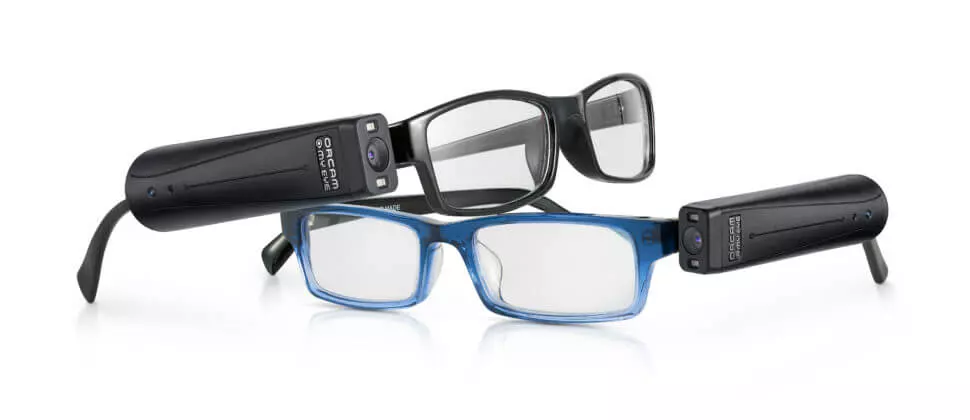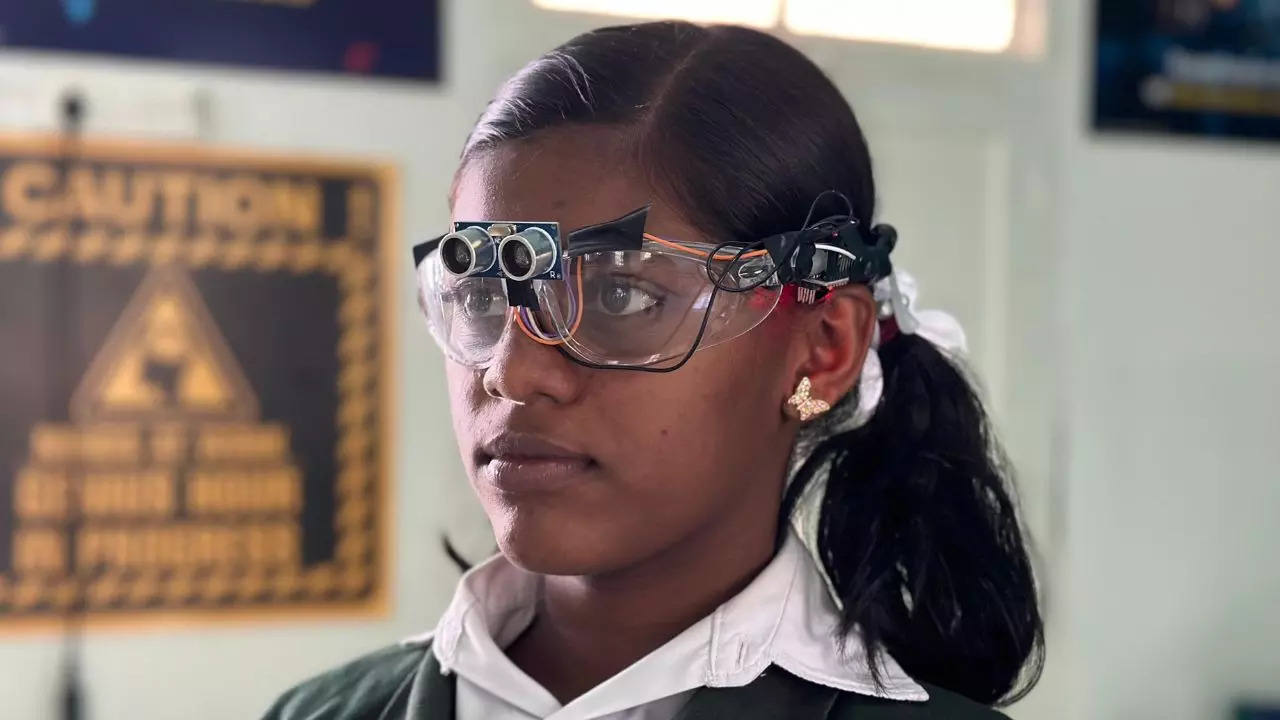OCR Devices for the Blind: Breaking Barriers with Optical Character Recognition
OCR Devices for the Blind: Breaking Barriers with Optical Character Recognition
Blog Article
Empowering Self-reliance With Assistive Modern Technology for the Blind
The combination of assistive innovation for individuals that are blind or aesthetically impaired stands for a significant development in promoting freedom and improving high quality of life. With an array of devices-- from screen readers to ingenious responsive devices-- these technologies not only help with navigation and communication however also advertise social addition and participation in numerous elements of life.
Comprehending Assistive Innovation
Although assistive modern technology has evolved substantially throughout the years, its basic purpose remains the exact same: to boost the quality of life for individuals with handicaps, specifically those that are aesthetically damaged or blind. This modern technology includes a broad variety of tools and devices that facilitate self-reliance and performance in everyday tasks.
Assistive modern technology can be classified right into high-tech and low-tech solutions, each designed to fulfill certain needs. State-of-the-art tools commonly consist of software applications, specialized equipment, and adaptive gadgets that utilize advanced innovation to give support in different contexts. Alternatively, low-tech services might include day-to-day items that are customized to boost availability, such as magnifiers or tactile markers.
The combination of assistive innovation right into the lives of people who are blind or visually hindered not just advertises autonomy however also promotes social inclusion and engagement in instructional and professional atmospheres. By leveraging these innovations, users can browse their surroundings, accessibility information, and connect effectively, thus enhancing their total quality of life. Recognizing assistive technology is critical for supporters, caretakers, and specialists who intend to sustain individuals in optimizing their potential and achieving better freedom.
Types of Assistive Gadgets
Assistive devices for the blind and visually damaged are vital tools that boost daily living by resolving specific obstacles encountered by users. These devices can be extensively classified into 3 primary types: optical gadgets, digital gadgets, and sensory gadgets.

Sensory gadgets, such as Braille screens and tactile maps, offer alternative methods to receive details. Braille displays convert digital text right into Braille, enabling individuals to go through touch. Tactile maps provide spatial understanding via elevated lines and textures, enabling far better ecological understanding.
Together, these assistive gadgets encourage individuals with visual impairments to involve even more completely with their surroundings, advertising greater independence and self-confidence in day-to-day activities.

Impact on Day-to-day Live
The combination of assistive technology into the every day lives of individuals that are blind or visually impaired considerably improves their ability to connect and navigate with the globe around them. Gadgets such as screen readers, Braille shows, and mobile applications assist in access to information, permitting customers to engage with electronic web content, connect effectively, and handle daily tasks separately.
Moreover, innovations like clever glasses and navigation apps provide real-time support in unknown atmospheres, boosting flexibility and self-confidence. These tools make it possible for customers to identify barriers, read indications, and also identify faces, thus cultivating a sense of autonomy in public spaces. Additionally, home automation systems, which can be regulated through voice commands, enable people to handle their living environments extra effectively, enhancing convenience and security.
The impact of assistive modern technology expands beyond functional tasks; it promotes social addition and emotional wellness. By bridging the space in between individuals and their environments, these modern technologies empower users to participate totally in area tasks, pursue instructional possibilities, and participate in meaningful partnerships. Eventually, the innovation of assistive innovation contributes in redefining the opportunities for people that are aesthetically damaged or blind, bring about an extra inclusive and obtainable culture.
Success Stories and Testimonies

An additional effective review comes from Mark, a recent college graduate that used screen analysis software program throughout his scholastic trip. This technology enabled him to gain access to program products and take part in conversations, eventually leading to his successful change into the workforce. Mark credit scores assistive innovation for equipping him to attain his occupation objectives, emphasizing its function in leveling the playing area for people with visual problems.
In addition, neighborhood centers have actually reported enhanced participation in their programs thanks to the intro of obtainable digital platforms. These systems have made it simpler for individuals to link, share sources, and assistance each other. These success tales jointly emphasize the extensive impact of assistive modern technology in cultivating freedom, boosting high quality of life, and damaging down obstacles for the blind and visually impaired neighborhood.
Future Patterns in Assistive Technology
Emerging technologies are poised to reinvent the landscape of assistive tech for individuals who are visually damaged or blind. Developments in synthetic intelligence (AI) and artificial intelligence are improving the capacities of gadgets, enabling even more intuitive customer experiences. AI-driven applications are progressively able to identify items and read message out loud in real-time, supplying individuals with important details about their surroundings.
In addition, developments in wearable modern technology are producing brand-new opportunities for freedom. Smart glasses equipped with increased fact attributes can overlay vital info onto the individual's field of view, helping with navigating and communication with the environment. The assimilation of Net of Points (IoT) tools is enhancing ease of access in smart homes, allowing users to control appliances and get notices through voice commands or responsive interfaces.
The development of braille displays and responsive comments systems is also rising, advertising accessibility to digital web content and improving interaction. As these technologies remain to evolve, they assure to boost day-to-day living, academic possibilities, and employment leads for people with aesthetic problems. Constant partnership in between engineers, users, and advocacy groups will be vital in making sure these advancements fulfill the needs of the neighborhood properly.
Conclusion
To conclude, assistive innovation plays an essential role in boosting the independence of people that are aesthetically impaired or blind. By offering crucial tools and sources, these innovations promote improved interaction, gain access to, and navigation to info, thus cultivating autonomy and confidence. The transformative effect of assistive gadgets not just promotes effective interaction with the atmosphere however also urges social inclusion and participation in numerous elements of life, eventually encouraging individuals to flourish within their areas.
The integration of assistive modern technology for individuals that are aesthetically impaired or blind stands for a significant development in fostering self-reliance and improving high quality of life.The combination of assistive modern technology into the lives of people read this article who are blind or visually hindered not only advertises autonomy yet additionally cultivates social inclusion and involvement in expert and instructional settings. Inevitably, the improvement find more info of assistive modern technology is important in redefining the possibilities for individuals who are blind or aesthetically impaired, leading to an extra easily accessible and inclusive culture.
Several people who are blind or visually damaged have actually shared inspiring success tales that highlight the transformative effect of assistive technology on their lives.In conclusion, assistive modern technology plays a pivotal function in enhancing the independence of individuals that are aesthetically impaired or blind.
Report this page